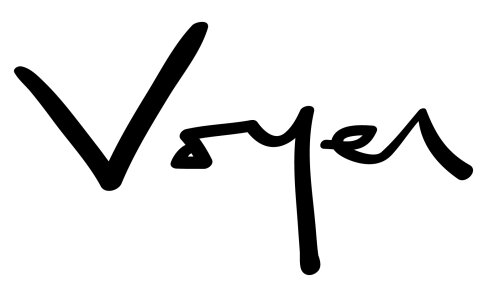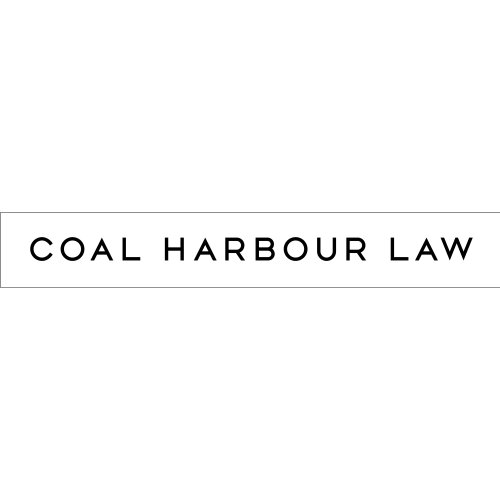Best Art & Cultural Property Law Lawyers in Vancouver
Share your needs with us, get contacted by law firms.
Free. Takes 2 min.
List of the best lawyers in Vancouver, Canada
About Art & Cultural Property Law in Vancouver, Canada
Art & Cultural Property Law in Vancouver, Canada, is a specialized area of law that addresses the creation, protection, use, and transfer of artistic and cultural assets within the region. Given Vancouver's rich blend of cultures and thriving art scene, this legal field covers a wide array of issues, from intellectual property rights for artists to the preservation and repatriation of cultural heritage items. Legal frameworks in this domain are designed to balance the interests of creators, collectors, public institutions, and Indigenous communities, ensuring the respectful and lawful management of cultural properties.
Why You May Need a Lawyer
There are several situations where individuals or organizations might require legal assistance in the field of Art & Cultural Property Law. Common scenarios include:
- Artists and Creators: Seeking to protect intellectual property rights and address copyright infringement.
- Estate Planning: Managing or transferring art collections as part of a will or estate plan.
- Art Dealers and Galleries: Navigating the sale, export, or import of art pieces while adhering to legal requirements.
- Museums and Cultural Institutions: Ensuring lawful acquisitions and loans, and handling claims for restitution of cultural objects.
- Indigenous Communities: Dealing with ownership and repatriation issues related to cultural artifacts and heritage sites.
Local Laws Overview
Vancouver operates under the broader legal frameworks of British Columbia and Canada, which influence Art & Cultural Property Law in several ways:
- Cultural Property Export and Import Act: This federal legislation regulates the export of cultural property from Canada, aiming to prevent illegal trafficking.
- British Columbia's Heritage Conservation Act: Protects significant heritage sites and archaeological resources within the province.
- Copyright Act of Canada: Governs the rights of creators over their artistic works and ensures proper intellectual property management.
- Indigenous Rights Framework: Addresses the legal principles related to the preservation and repatriation of Indigenous cultural properties.
- Contract Law: Essential for agreements in art sales, loans, and other commercial transactions involving art or cultural properties.
Frequently Asked Questions
What is the significance of copyright in art law?
Copyright ensures that the creator of an artistic work has exclusive rights to its use and distribution, protecting their intellectual property from unauthorized usage.
Are there specific laws for Indigenous art and cultural artifacts?
Yes, there are specific legal frameworks that address the rights of Indigenous communities concerning their cultural heritage and artifacts, including mechanisms for repatriation and protection.
Can I legally sell art that I purchased from another country?
While you can sell art purchased from abroad, it must comply with both Canadian import regulations and the laws of the country of origin regarding cultural property export.
What steps should I take if I inherit a collection of artworks?
Consider consulting a lawyer for assistance with estate planning, appraisals, and ensuring compliance with tax and cultural property laws.
How can art dealers ensure ethical practices?
Art dealers should maintain transparency, adhere to cultural property laws, provide provenance documentation, and ensure their business practices meet both legal and ethical standards.
What happens if an artwork I own is identified as a stolen piece?
It's essential to consult legal counsel immediately to explore options for restitution, resolving ownership disputes, and avoiding potential legal consequences.
How are disputes over art contracts typically resolved?
Disputes are often resolved through negotiation, mediation, or arbitration, but litigation may be necessary in some cases.
Are there protections for digital art in Canada?
Yes, digital art is protected under the Copyright Act, which includes provisions for digital rights management and protection against unauthorized reproductions.
How do museums handle the return of cultural artifacts to their countries or communities of origin?
Museums typically engage in negotiations and legal processes to address claims for repatriation, ensuring that returns comply with legal and ethical standards.
What role do provenance and title play in art transactions?
Provenance and title are crucial in verifying the authenticity and legal ownership of art pieces, helping to prevent disputes and ensure clear legal transactions.
Additional Resources
For those seeking more information, several resources and organizations in Vancouver and Canada can provide valuable insights:
- Canadian Heritage: A governmental body responsible for cultural policy in Canada.
- The Canadian Art Museum Directors Organization (CAMDO): Offers resources and guidance for Canadian museums and art institutions.
- Indigenous Repatriation Program: An initiative supporting the return of Indigenous cultural artifacts to their rightful communities.
- Law Society of British Columbia: Provides information on finding legal representation and understanding legal rights in BC.
Next Steps
If you find yourself in need of legal assistance in Art & Cultural Property Law, consider taking the following steps:
- Consultation: Schedule a consultation with a lawyer specializing in Art & Cultural Property Law to discuss your situation and explore your options.
- Research: Familiarize yourself with relevant laws and resources that apply to your particular needs or concerns.
- Plan: Outline your objectives and create a list of questions or issues you want to address with your legal counsel.
- Engage Legal Services: If necessary, hire a lawyer to represent you in legal matters related to art and cultural property, ensuring their expertise aligns with your needs.
Lawzana helps you find the best lawyers and law firms in Vancouver through a curated and pre-screened list of qualified legal professionals. Our platform offers rankings and detailed profiles of attorneys and law firms, allowing you to compare based on practice areas, including Art & Cultural Property Law, experience, and client feedback.
Each profile includes a description of the firm's areas of practice, client reviews, team members and partners, year of establishment, spoken languages, office locations, contact information, social media presence, and any published articles or resources. Most firms on our platform speak English and are experienced in both local and international legal matters.
Get a quote from top-rated law firms in Vancouver, Canada — quickly, securely, and without unnecessary hassle.
Disclaimer:
The information provided on this page is for general informational purposes only and does not constitute legal advice. While we strive to ensure the accuracy and relevance of the content, legal information may change over time, and interpretations of the law can vary. You should always consult with a qualified legal professional for advice specific to your situation.
We disclaim all liability for actions taken or not taken based on the content of this page. If you believe any information is incorrect or outdated, please contact us, and we will review and update it where appropriate.










